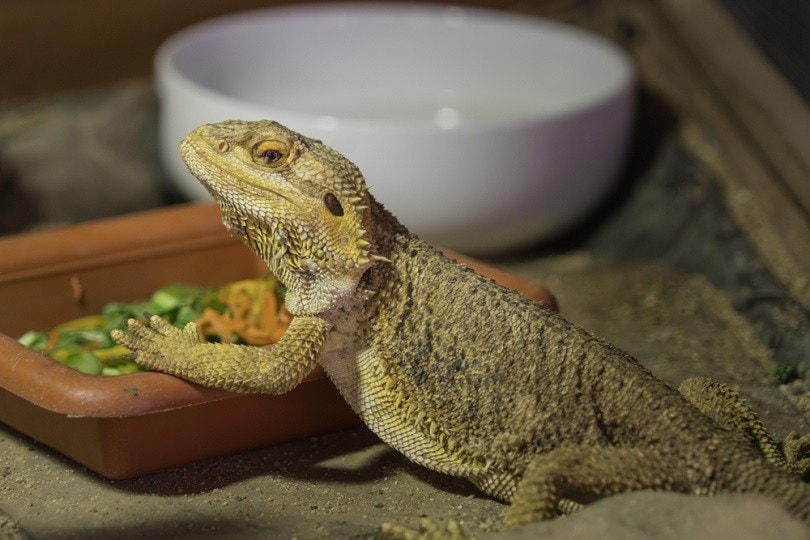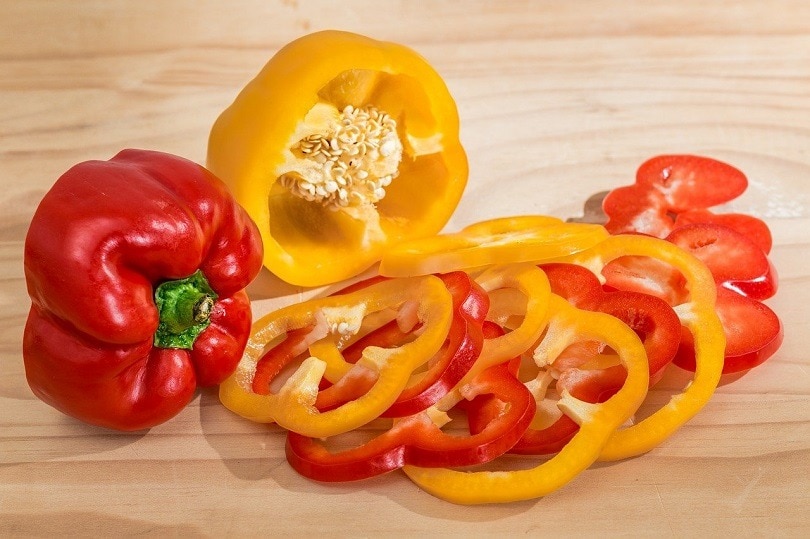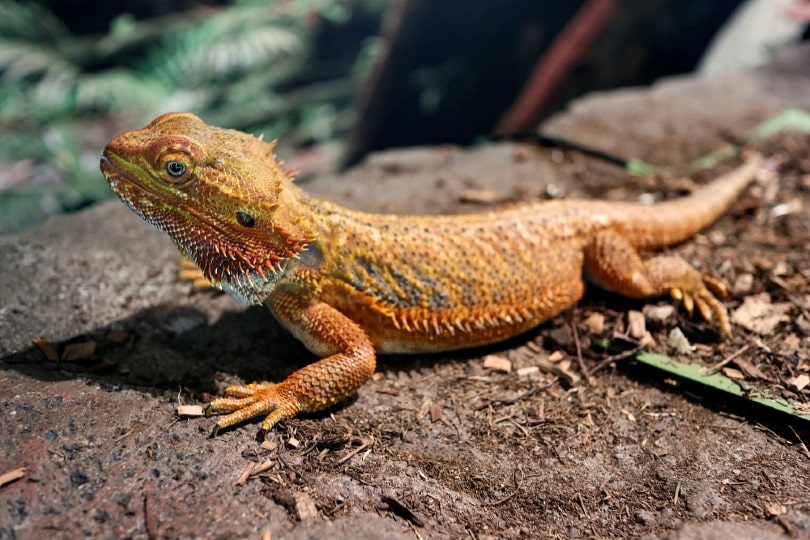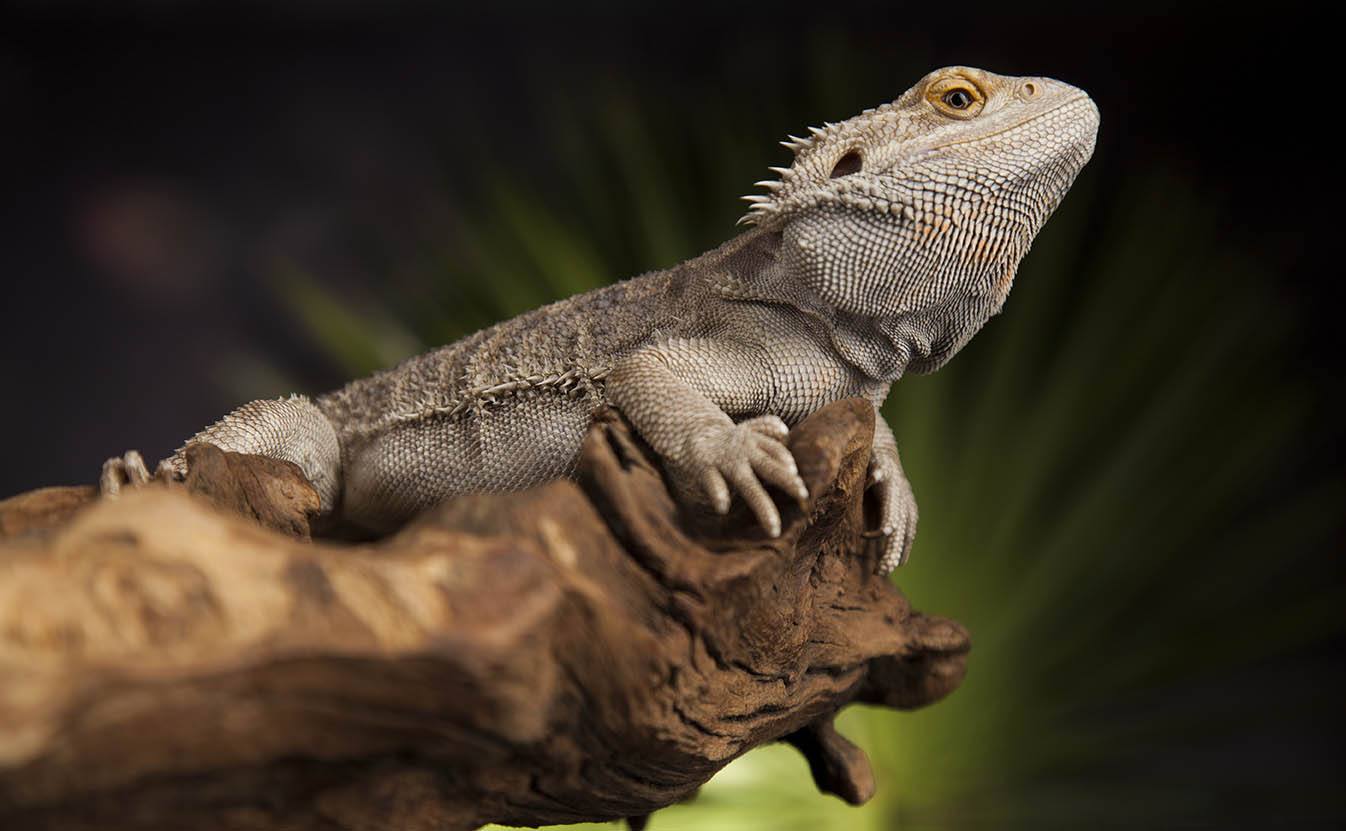
Bearded dragons love eating fruits and vegetables of all kinds, just like we humans do. Leafy greens, cucumbers, sweet potatoes, carrots, and cabbage are just a few examples of the things that bearded dragons expect to see in their daily salads. But can bearded dragons eat bell peppers? The short answer is yes, but there are a few considerations to make before you start feeding your bearded dragon any bell peppers. Here is what you need to know.
Bell Peppers Nutritional Information & Safety
Bell peppers do contain nutrients that are beneficial for bearded dragons, which is why they are great occasional additions to their salad meals.
The nutritional value of other bell peppers (green, yellow, and orange) is similar to that of the red bell pepper. While there are a few differences among them, bell peppers of all colors are safe for bearded dragons. It’s best to have variety in your pet’s diet, and this can be further enhanced by rotating the color of the pepper that they’re offered as a treat.

Bell Pepper Concerns
Even though bearded dragons can benefit from the nutrients found in bell peppers, these fruits should not be offered to your pet in high amounts. They also shouldn’t be the only fruits that they’re offered.
The main reason that a bell pepper requires a degree of caution is its calcium-to-phosphorus ratio. For healthy adult bearded dragons in maintenance, their diet should have a calcium-to-phosphorus ratio of anywhere between 1.5:1 and 2:1. This means calcium should be around twice as much as phosphorus. The recommended ratio for juveniles is around 2:1, and beardies that are breeding (particularly females) require a much higher calcium intake compared to adults in maintenance.
In bell peppers, calcium is much lower than phosphorus, typically around 0.2:1. Such a ratio is undesirable for the long-term health1 of a bearded dragon because it may predispose them to kidney or parathyroid issues. Therefore, bell peppers should be viewed as treats and not be major components of their daily salad servings.
Fun Ways to Offer Bell Peppers to Your Bearded Dragon
You can offer your bearded dragon a piece of fresh bell pepper straight from the kitchen as-is — after you core and de-seed it, of course. Two or three 1 x 1-cm (approximately ⅖ of an inch) cubes served twice a week is considered safe for most healthy adult bearded dragons.
However, this is not the only way that you can feed your beloved pet this colorful, sweet veggie.
It is important to thoroughly wash your hands before preparing bell peppers (or any other food) for your bearded dragon. You should also wash the bell peppers to remove any chemical or pesticide residues on the skin. Removing the skin altogether is also an option, though this does reduce the nutritional value of the bell pepper slightly. Still, the trade-off is often worth it, as this fruit shouldn’t form a large part of their diet, anyway.

Summary
Do not be afraid to feed bell peppers to your bearded dragon, but do so with caution. Make sure this fruit makes up little of your pet’s diet overall, and ensure that your pet is getting a wide variety of fruits and vegetables throughout the week.
Featured Image Credit: Brett_Hondow, Pixabay










